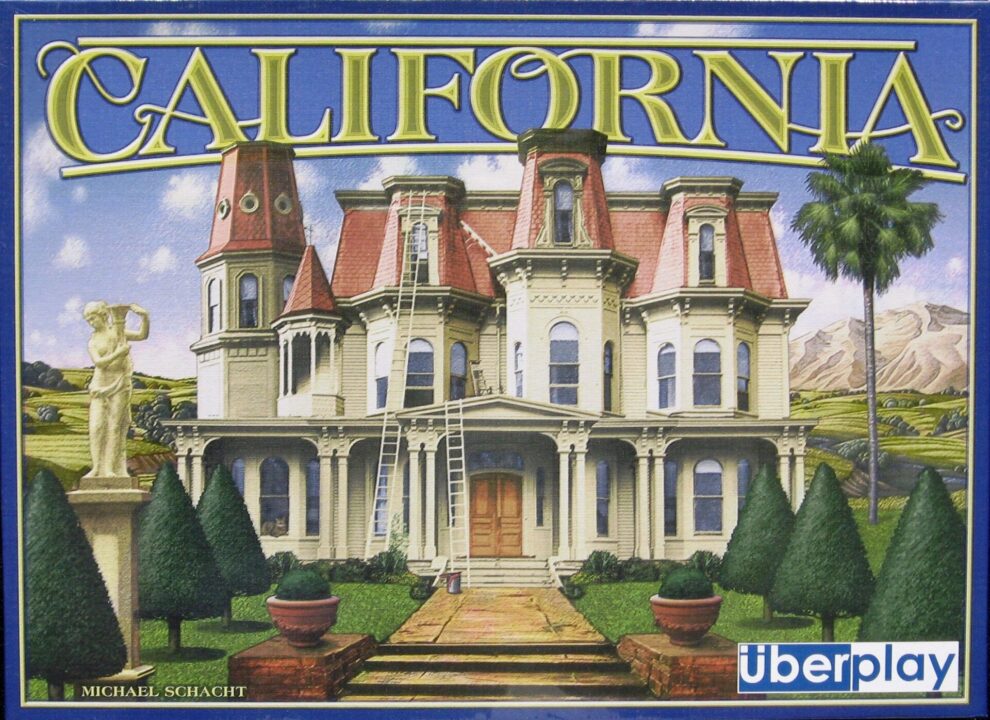Welcome to my review of California! If you’ve ever wanted to collect furniture faster than your neighbors and show off your new summer house while your friends try to outbid you for a stylish sofa, then you might want to pull up a beach chair and keep reading. I’ve played this game with a competitive bunch (we nearly started a pillow fight over a particularly ugly lamp), so you’re about to get the honest truth—with plenty of jokes and maybe one or two gripes about tile-luck. Let’s see if this sun-soaked board game is worth your hard-earned game night slot!
How It Plays
Setting up
Each player grabs a snazzy California house board, some cash, and their color of wooden furniture tokens. Lay out the tiles in the center, put the guest cards nearby, and give everyone their starter dollars. If you can’t find your starting cash, check under the rulebook or your cat.
Gameplay
On your turn, you can either go shopping for new furniture or renovate a room in your house. Shopping lets you snatch tiles from the market (hopefully before your annoying cousin does). Renovating means placing tiles to attract guests for points. Keep an eye on your fancy neighbors—they might swipe the good stuff if you blink. If you struggle with decision-making, this game will test your patience (and your friendships).
Winning the game
Once the final round finishes, it’s time to count up points—furniture, rooms, and happy guests all get you closer to the California dream. The player with the most points wins. If you lose, just say you were too busy enjoying the sunshine to care.
Want to know more? Read our extensive strategy guide for California.
Soaking Up the Sun: Theme and Artwork in California
If you’ve ever wondered what it would be like to build your dream house in the Golden State while your friends cheer—or secretly curse—your taste, then California delivers a splashy, sun-soaked answer. The game’s theme is as warm and inviting as a Malibu beach party. I mean, who doesn’t want to chase the American dream with a pool and a swanky living room while the sun smiles down on your cardboard mansion?
The artwork in California really captures that West Coast vibe. The box art looks like the glossy cover of a real estate magazine, and when I laid out the board, my friends immediately started humming “California Dreamin’.” There’s color everywhere—palm trees, classic convertibles, even a teeny dog that’s living its best life. Your house board slowly fills up with decorative tiles, each one a cheerful little piece of 1950s Americana. Honestly, my only complaint is that it made me crave lemonade and sunglasses (neither of which were provided, by the way—major oversight if you ask me).
But let’s be real, the art isn’t just there to look pretty. It keeps you engaged, makes spotting tiles easier, and helps the turns snap by quicker than you’d think. Every piece pops off the table, which means even my friend Dave—who is legally blind without his glasses—never complained about missing details. I’ve seen games where the artwork is so bland you start to question your life choices, but California brings a sense of fun to every play session. It’s like your table gets an instant tan.
Let’s roll up our sleeves, put the sunscreen away, and see if the gameplay mechanics balance out all this California sunshine in the next section!
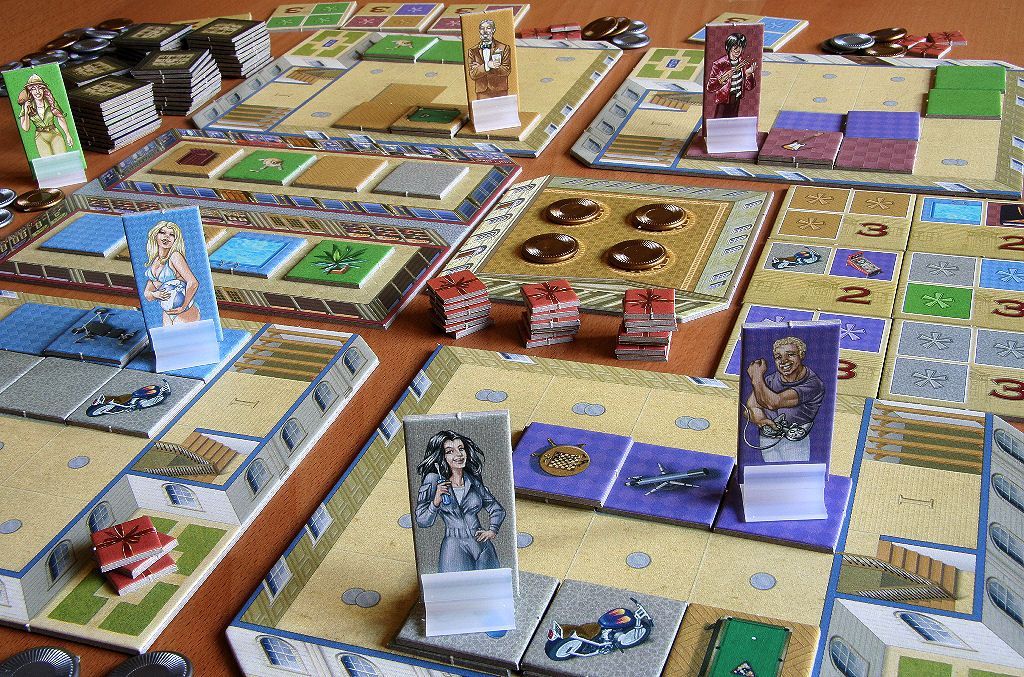
Does California Play Fair? A Look at Gameplay & Mechanics
Alright, let’s talk turkey—or, well, beach houses and palm trees, since this is California we’re reviewing. I’ve wrangled my friends on a sunny weekend and played the game enough to know when something’s cooked or if it’s just lukewarm guac.
California is one of those games that gives you a weird feeling of accomplishment for buying furniture. (In the game! Please don’t redecorate your house just for this.) The core goal is to make your house the envy of everyone by filling it with stylish furniture, funky decor, and—oddly—golden bathtubs. You choose what to grab from the market, and the options out there change up each turn, keeping things fresh enough that nobody can snooze their way to victory.
I like that there’s a hint of strategy here. You need to plan when to spend your hard-earned coins and when to save up. But—and here’s the rub—sometimes the furniture fairy just doesn’t smile on you. If you want that green sofa, and none show up, tough tacos. Luck plays a role, and some players breeze through thanks to fortunate draws. That’s a beach bum bummer for me. I docked a star for it, because I like my games with a little more muscle and less magic eight ball.
Is it unbalanced? Not really. But it’s not chess either. Everyone has an equal shot, but sometimes the dice (or in this case, the tiles) seem to party with someone else. Next up, let’s see if California causes more competition than a surf contest at Venice Beach—stay tuned for player interaction!
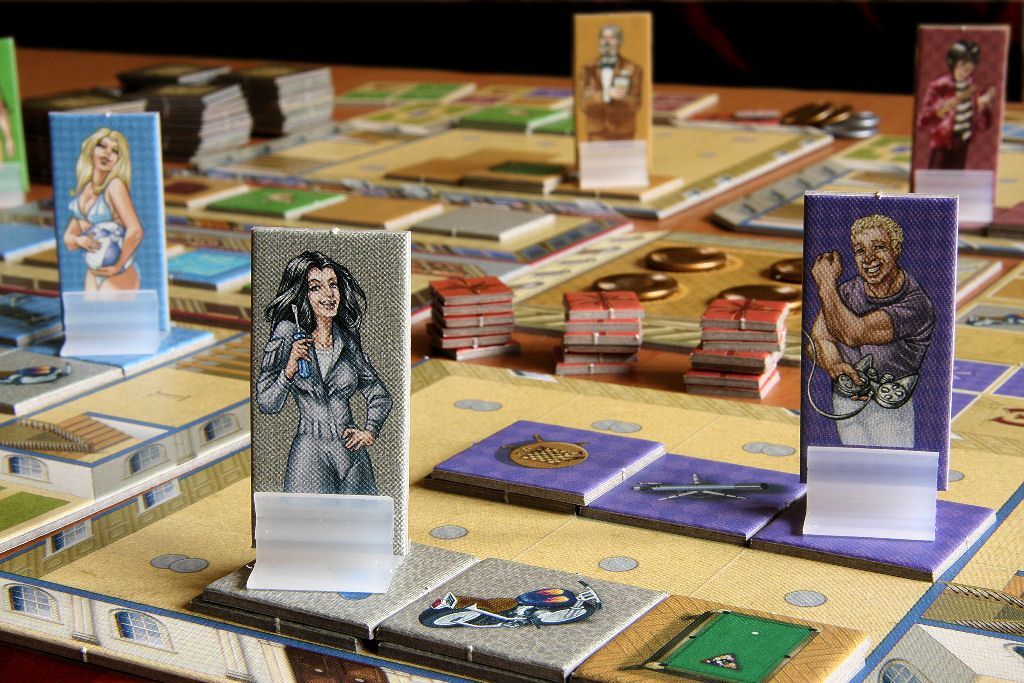
How Players Compete and Connive in California
If you’re like me and enjoy a little elbow-jabbing (metaphorically, not physically—my group still remembers the Great Elbow Incident of 2017), then you’ll be pleased with the player interaction in California. This game is not just about buying fancy furniture and hoping for the best. It’s all about reading your friends’ minds, plotting your next move, and sometimes grabbing a rug from under their feet (again, metaphorically – though carpets do feature in the game).
The heart of the competition lies in the way players race for limited tiles. There’s a mad dash every round when those juicy sun tokens and choice pieces of furniture hit the market. If you want that lovely bathtub to complete your bathroom set, you better act fast before someone else nabs it. The tension is real! Even my usually mild-mannered friend Bob became a ruthless California real-estate mogul, snatching tiles right before I could get my hands on them. He was never invited to my game-night spa party again.
What I really appreciate is how California keeps everyone involved. You’re always checking what others collect, eyeing their boards, and grumbling (loudly) when someone steals that last blue sun token you needed. People interact through competition for tiles, not direct take-that actions, so it never feels mean-spirited—just a bit cheeky. That said, some players might wish for more ways to actively sabotage their friends (looking at you, Karen), but I found the competition just right.
Next, I’ll talk about how many times you can play California before your eyes glaze over, and whether your grandma will survive the game’s length without a nap!
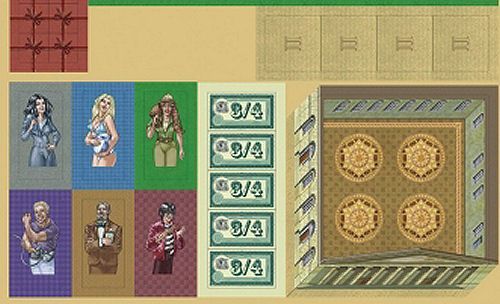
Replayability and Game Length in California: Will You Keep Coming Back for Sun and Fun?
California is one of those games that tricks you. You look at the box, think, “Okay, a light afternoon in the sun,” and then suddenly you’re three games deep and still arguing about the best chair for your pretend pool party. It definitely has replay value, but it’s not infinite. Variability comes from the random setup of furniture tiles and guest cards, plus the choices players make about what bling to buy for their houses. So, there’s always a little twist each time I play with my friends – and sometimes, a heated debate about the color of carpets.
The length is California’s secret weapon. Most games clock in at around 45 minutes. That means you can squeeze in a round before dinner, after dessert, or during any lull when your relatives start talking politics. The brisk pace keeps everyone engaged, and no one feels like running away for the hills (or the actual California, for that matter). And honestly, because it’s not too long, you won’t hesitate to play again right after – or at least demand a rematch if your garden is weirdly empty at the end.
I’d say California is worth having if you like quick, breezy games with a touch of tactical flavor. It won’t satisfy those marathon gamers, but if you want something that will hit the table a lot and not overstay its welcome, it’s a solid, sunny choice. Grab your sunglasses – I recommend it, pool float and all!
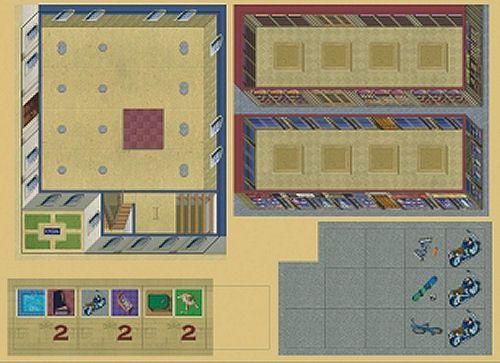
Conclusion
Alright, my fellow board game wanderers, that wraps up my sandy stroll through sunny California. If you like breezy games with bright colors and a touch of light strategy, this one’s a blast. It’s easy to learn, quick to play, and won’t make you argue over rulebooks (unless you’ve got that one friend who turns every game into a constitutional crisis). Sure, there’s a bit of luck and sometimes Lady Fortune likes to crash on your couch, but who hasn’t had an uninvited guest in California? If you want a good mix of fun and competition for family or mixed-age groups, this game’s worth a spot on your shelf. If you crave deep strategy or hate the dice, you might want to vacation somewhere else. All in all, I give California a solid 4 out of 5 mojitos. Now, if only my real house looked as cheerful as my pretend one!

